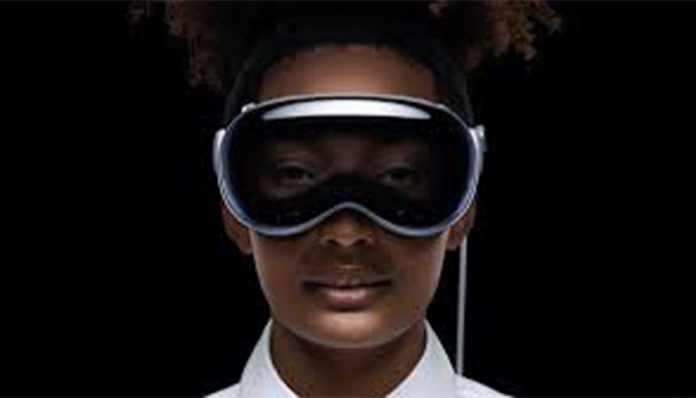According to Social Sciences the Apple Vision Pro is considered the most advanced consumer virtual reality headset, but alongside this piece of technology comes a sacrifice of our privacy and the physical and psychological effects from VR. The Spatial Operating System (Vision OS) within the Vision Pro has complete visibility of your surroundings to monitor and collect data, allowing the potential of many privacy concerns if misused. Since VR headsets have entered the market, various physical effects have been reported by users. Although VR headsets have potential towards treating mental health disorders, studies have found that cognitive alterations and psychological effects can be caused from VR.
From scanning your environment, to your irises, the Vision Pro collects an alarming amount of data. According to Forbes, Apple plans to collect biometric data by combining the Apple Watch with Apple Vision Pro, creating a closed-loop personalized system. This can be beneficial during therapy treatment, to monitor the patient’s body, cognition function, and psychological or physiological state.
However, there are many privacy concerns attached with this amount of personal data being collected. The LIDAR sensor within the Vision Pro observes and monitors your entire surroundings, hand, and eye movements while using the headset. This level of surveillance could lead to even more tailored advertisements, possibility of governments collecting intimate details of our daily lives, and the creation of detailed maps of our environments from the 3D camera.
Another area of concern is the collection of facial data and the many possibilities of social misuse. For example, deepfake technology continues to evolve, and with a detailed map of your face, this could be a potential contribution to synthetic data that’s easily accessed and violated. Overall, despite the Vision Pro’s benefits in a clinical context, the privacy risks outweigh the few positives, by having such a vast amount of personal data being collected and monitored.
Two major physical effects of VR headsets are cybersickness and VR illusion. Cybersickness symptoms include headaches, eye strain, dizziness, and nausea from using the headsets. According to David Reid, professor of AI and spatial computing at Liverpool Hope University, Apple has made some key adjustments like reducing lag and delay, and using high-quality displays to eliminate cases of cybersickness when using the Vision Pro. Although the Vision Pro may be considered better than other headsets for motion sickness, Reid explains that Vergence-accommodation conflict is the main problem with VR motion sickness.
VR can also be used for some therapeutic programs, to assist with vision problems. However, at the same time, studies have predicted that exposure to screens at such short distances may increase the eye condition, Myopia, among users. Researchers believe that half of the population will be affected by Myopia by 2050.
VR is like a double-edged sword in terms of its psychological effects on its users. According to Forbes, Apple is focused on health and wellness for the future of the Vision Pro. Apple has requested multiple patent filings, including to utilize machine learning and signals from the body and brain to predict how focused or relaxed you are. When used in a clinical context, VR can be used to treat those suffering from many different mental health disorders.
Stéphane Bouchard, a psychotherapist and professor at the Université du Québec en Outaouais, provides therapy in his six walled virtual reality facility inside the offices of Anxiety Canada. His work begins with an audiovisual representation of the patient’s phobia, triggering a sense of presence and hidden feelings of anxiety. However, there is deficient research on the possibility of VR triggering those same feelings in a non-clinical environment.
A 2014 study at the University of California, which performed tests on rats, found cognitive alterations in the brain during VR use, and over half of the neurons in the brain shut down. Medical research also indicates some symptoms of VR use can include dissociation, isolation, social anxiety and addiction.
Overall, the Vision Pro may be appealing but not worth the intense level of personal data collected, and the physical and psychological effects that come with the use of VR. The amount of data the Vision Pro will collect, from scans of our irises, our biometric data, and 3D maps of our environments, is all alarming and a step closer to sacrificing the small amount of privacy that consumers have left. Although the physical effects of VR are improving, there is a lack of research on the long-term effects, and reason to be cautious. Finally, in a controlled clinical environment, VR is promising for treating some mental health disorders, however, outside of this context imposes many risks such as dissociation, isolation, social anxiety and addiction. To conclude, given the Vision Pro’s unreasonably high price, and the many risks it will impose on consumers, I urge you to reconsider your purchase, and whether you are willing to give up the privacy you have left for a digital realm.




